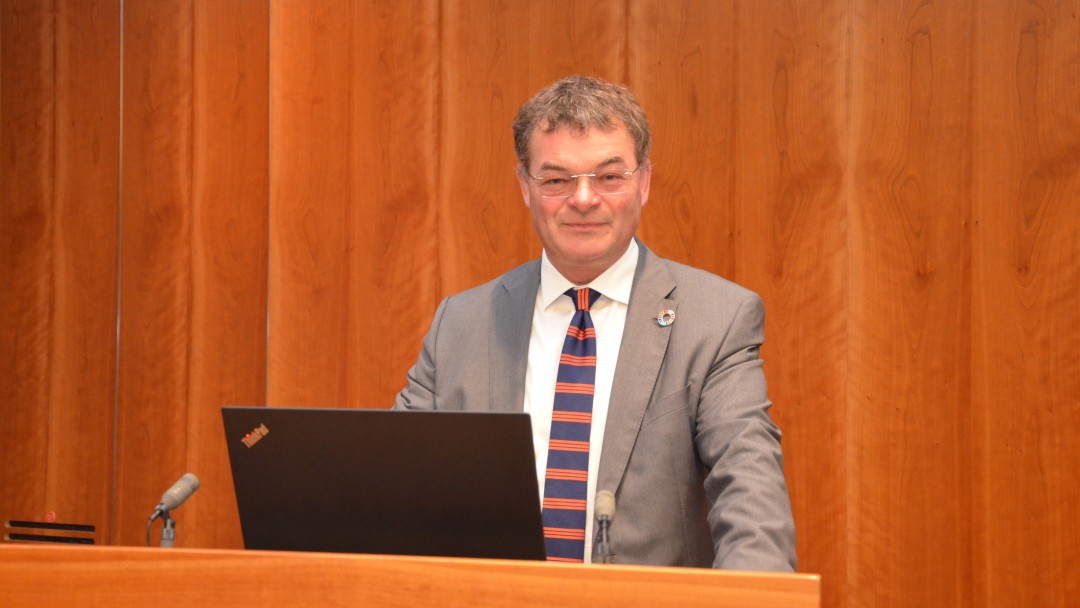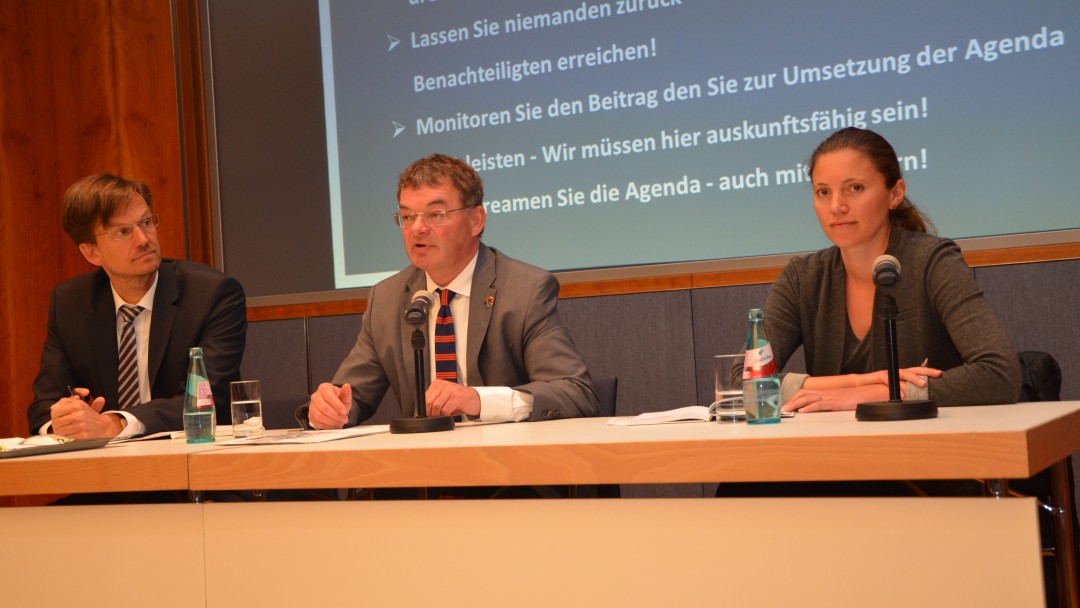News from 2017-05-24 / KfW Development Bank
Three-dimensional objectives
Ingolf Dietrich, Sustainability Commissioner at BMZ, calls for a rethink
BMZ Director Dr Ingolf Dietrich spoke about the impacts of the Sustainable Development Goals (SDGs) on Financial Cooperation at KfW’s Development Forum in the middle of May. The German Federal Government’s Commissioner for the 2030 Agenda for Sustainable Development had specific expectations for KfW.
Dr Ingolf Dietrich called upon KfW staff to "think three-dimensionally". By this he meant considering the social, ecological and economic dimensions of projects at the same time, in the sense of the sustainable development goals adopted by the United Nations in 2015. From the BMZ’s perspective, the Sustainable Development Goals (SDGs) constitute a "pact on the world’s future" that sets the global path of development for the coming years until 2030. The 17 goals were subdivided into 169 targets, to which 231 indicators have been assigned. These indicators make it possible to measure the target achievement.
Dr Dietrich emphasised the fact that, during the elaboration of the sustainability objectives, Germany urged the signatories to "commit to a reliable monitoring system". This is why Germany was also one of the first countries to agree to present its national plans at the High-Level Political Forum on Sustainable Development, the peer mechanism of the SDGs.

KfW Head of Division Marc Engelhardt moderated the event, and he added that KfW’s help is in demand both with achieving the SDGs in Germany and with supporting the SDG implementation in partner countries, and therefore Agenda 2030 is highly relevant for the entire KfW Group. KfW for example is a co-signatory of the "Frankfurt Declaration" in which the key participants on the Frankfurt financial market commit to sustainable financing, and explicitly to the SDGs as well. Julia Sattelberger from KfW’s internal research team noted in her presentation that many of the indicators were formulated at a very abstract level. It is difficult to determine, for example, just how much an individual KfW project contributes to reducing child mortality in a partner country. "We strive to measure what can plausibly be measured," she said. It is not advisable to take part in a competition to achieve "the highest figures possible".
Dr Ingolf Dietrich conceded there is an "attribution gap" with regard to the impacts of projects and the fulfilment of SDGs. "Nonetheless, we have to remain capable of providing information," he emphasised. The BMZ Commissioner suggested that Financial Cooperation could also support statistical offices in partner countries for example, to improve the capture of data. This would be similar to supporting Federal Audit Offices.
Backwards roll?
Further questions in the animated discussion related to priorities in the SDGs, such as whether the SDG motto of "Leave no one behind" does not ultimately place alleviating poverty above the other 16 objectives.
"Neglecting one dimension threatens long-term progress in the other two dimensions," said Dr Dietrich, emphasising the correlation between the three target fields of social, ecology and economy. The added value of the SDGs is found not so much in the broad listing of key development goals – there was little debate about these before anyway – but in the realisation that synergies between the objectives should be exploited more systematically and potential conflicts among objectives addressed more openly than before. This ensures that concrete projects not only support one specific SDG, but also the collection of objectives as a whole.


Share page
To share the content of this page with your network, click on one of the icons below.
Note on data protection: When you share content, your personal data is transferred to the selected network.
Data protection
Alternatively, you can also copy the short link: https://www.kfw-entwicklungsbank.de/s/enzBWrMC.BlmA
Copy link Link copied